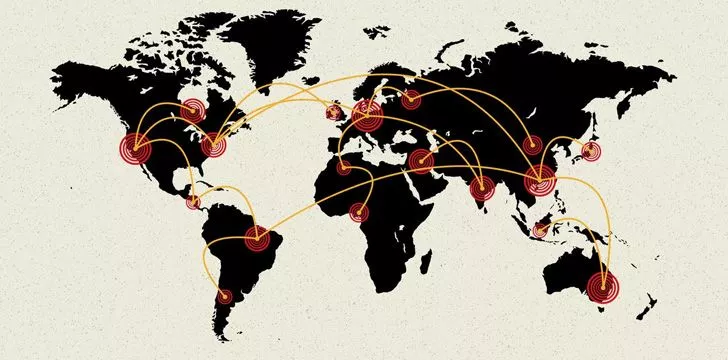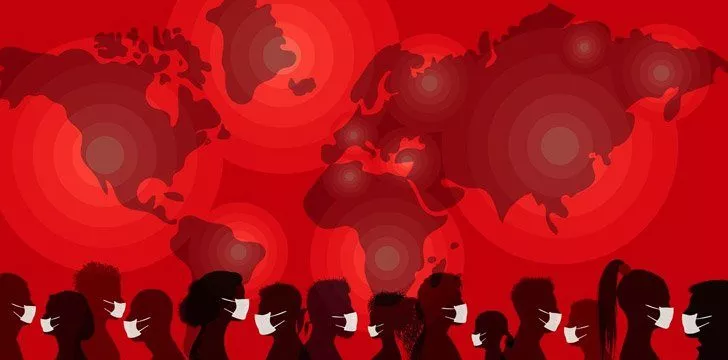In these turbulent times, we can’t escape the news about Covid-19 – better known as Coronavirus.
It’s something that dominates our newsfeeds and TVs – holidays have been canceled, Italy is on lockdown, and countries all around Europe are enacting their own plans to combat this viral threat.
The World Health Organization (WHO) announced in early March 2020 that the virus was now at a Pandemic stage across the world.
But what exactly does that mean? And how is a Pandemic different from an Outbreak or an Epidemic?
Surprisingly the definition of each word isn’t exactly a scientific term that’s tied to cold, hard, quantifiable data – rather they’re words with both scientific and political connotations that link to a whole bunch of different factors.
How are their terms measured?

The definitions for each of these terms are measured against a series of different factors, such as the disease prevalence, incidence, and the known or unknown pathways of transmission the disease uses.
These three terms are usually used to classify the spread of a new disease, labeling it as an Outbreak, Epidemic, or Pandemic.
But what does each of those words actually mean?
What is an Outbreak?

Generally speaking, the term “Outbreak” can be summarized as a small, but an unusual burst of disease. An Outbreak is usually what is used to refer to a geographically contained spread of disease.
So, looking at Covid-19, the initial cases that were contained to China would have been classed as an Outbreak.
After all, these cases started off small in number yet still unusual due to the unknown nature of the virus.
What is an Epidemic?

An Epidemic constitutes an illness, disease, or virus that is growing in reported cases and spreading internationally.
So, once again looking at Covid-19, when cases in China started to rise exponentially and we started seeing cases of the Covid-19 strain popping up across the world this shifted it from an Outbreak to an Epidemic.
What is a Pandemic?

A Pandemic is defined as being present globally and spreading out of control.
So, when the WHO declared the spread of Covid-19 to be at the stage of Pandemic, it shouldn’t have come as a surprise given that the virus had spread to 125 countries and territories in total.
However, the declaration of a Pandemic doesn’t mean the end of the world is nigh, it simply means that the spread of the virus has reached a global proportion.
In Conclusion
One must remember that these terms are as intrinsically scientific as they are political and that the use of the term Pandemic by the WHO signals that Covid-19 is a global threat, and that all governments should continue taking the appropriate prevention and combative action they are currently taking.
Just remember to stay calm, follow the guidelines for cutting down the risks of infection, and call your country’s health service for advice if you think you may have contracted it.












